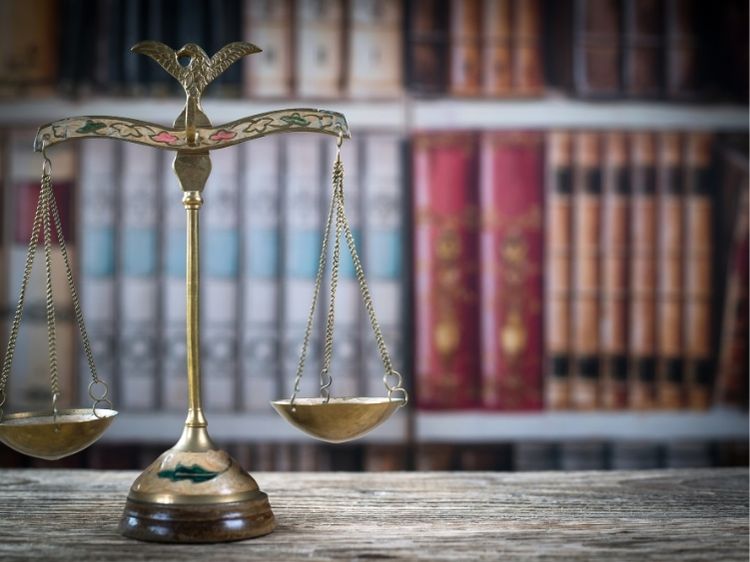Ever found yourself in a sticky situation where someone claims you’re responsible for their loss or injury? Yikes, right? That’s where liability lawyers come into play. These legal experts are your go-to for navigating lawsuits, handling claims, and ensuring your rights are protected.
In this article, we’ll dive into everything you need to know about liability lawyers. We’ll cover their roles, the types of cases they handle, and tips for choosing the right one. Let’s get started!
What Are Liability Lawyers?
Liability lawyers specialize in cases where someone is held legally responsible for causing harm to another. They represent individuals, businesses, or organizations involved in disputes related to:
- Personal injury claims
- Property damage
- Medical malpractice
- Product liability
- Workplace incidents
Whether you’re the plaintiff (the one suing) or the defendant (the one being sued), a liability lawyer works to protect your interests and ensure a fair resolution.
Types of Liability Cases
1. Personal Injury Claims
Injuries from car accidents, slips, and falls? A liability lawyer can help you sue the at-fault party for compensation.
2. Medical Malpractice
When a healthcare provider’s negligence leads to harm, liability lawyers step in to prove fault and secure damages.
3. Product Liability
Ever bought something that malfunctioned and caused an injury? Manufacturers and sellers can be held liable, and these lawyers are experts in such cases.
4. Premises Liability
If someone gets injured on your property, you could be held responsible. Liability lawyers handle these disputes, whether you’re the property owner or the injured party.
5. Employer Liability
Accidents at work often lead to claims against employers. Liability lawyers ensure workers get fair treatment or defend employers from frivolous claims.
Why You Might Need a Liability Lawyer
Hiring a liability lawyer can save you a ton of headaches. Here’s why you should consider one:
- Expert Negotiation Skills: They’ll negotiate settlements to avoid lengthy court battles.
- Legal Knowledge: Liability laws can be complex; they simplify the process.
- Representation in Court: If your case goes to trial, they’ll fight for you.
- Financial Protection: They can help you minimize financial losses.
How to Choose the Right Liability Lawyer
1. Experience Matters
Look for someone with a proven track record in handling cases similar to yours. A lawyer with years of experience knows the ins and outs of the legal system.
2. Specialization
Not all lawyers are created equal. Choose one who specializes in liability law rather than a general practitioner.
3. Client Reviews
Read reviews or ask for testimonials. Past clients often share helpful insights into their experience.
4. Fee Structure
Discuss fees upfront. Some lawyers charge hourly rates, while others work on a contingency basis (they only get paid if you win).
5. Communication
You need a lawyer who’s easy to reach and explains things clearly. Legal jargon can be confusing—your lawyer should simplify it for you.
What Does the Process Look Like?
Step 1: Initial Consultation
Most lawyers offer a free consultation. Use this opportunity to discuss your case and gauge whether they’re a good fit.
Step 2: Investigation
Your lawyer will gather evidence, interview witnesses, and review relevant documents to build a strong case.
Step 3: Negotiation
Before heading to court, they’ll try to settle the matter through negotiations with the other party.
Step 4: Court Proceedings
If negotiations fail, your lawyer will represent you in court, presenting evidence and arguing your case.
FAQs About Liability Lawyers
What’s the difference between a liability lawyer and a personal injury lawyer?
While both deal with harm or injury cases, personal injury lawyers focus specifically on cases where the plaintiff has been injured. Liability lawyers cover a broader range of disputes, including property damage and employer liability.
How much does hiring a liability lawyer cost?
Fees vary depending on the lawyer’s experience, case complexity, and location. Some work on contingency, meaning they take a percentage of your settlement.
Do I always need a lawyer for liability cases?
Not always. For minor claims, you might handle it yourself. However, for serious cases involving significant damages, a lawyer is crucial.
Can I sue someone without proof of liability?
No. You must provide evidence that the other party was at fault. A liability lawyer helps gather and present this evidence.
How long does it take to resolve a liability case?
It depends on the case complexity. Some disputes are settled within months, while others can take years if they go to trial.
Tips for Working with Liability Lawyers
- Be Honest: Share all relevant details, even if they’re not in your favor.
- Stay Organized: Keep all documents, photos, and receipts related to your case in one place.
- Ask Questions: Don’t hesitate to clarify doubts or seek updates.
- Follow Their Advice: They’re the experts—trust their guidance.
Summary
Liability lawyers are your best bet for navigating legal disputes where responsibility is on the line. Whether it’s a personal injury claim, property damage, or workplace issue, these professionals bring expertise and negotiation skills to the table. When choosing a lawyer, prioritize experience, specialization, and communication. And remember, honesty and organization go a long way in ensuring your case runs smoothly.
Authoritative Links
- American Bar Association: https://www.americanbar.org
- Legal Information Institute: https://www.law.cornell.edu
- FindLaw: https://www.findlaw.com
